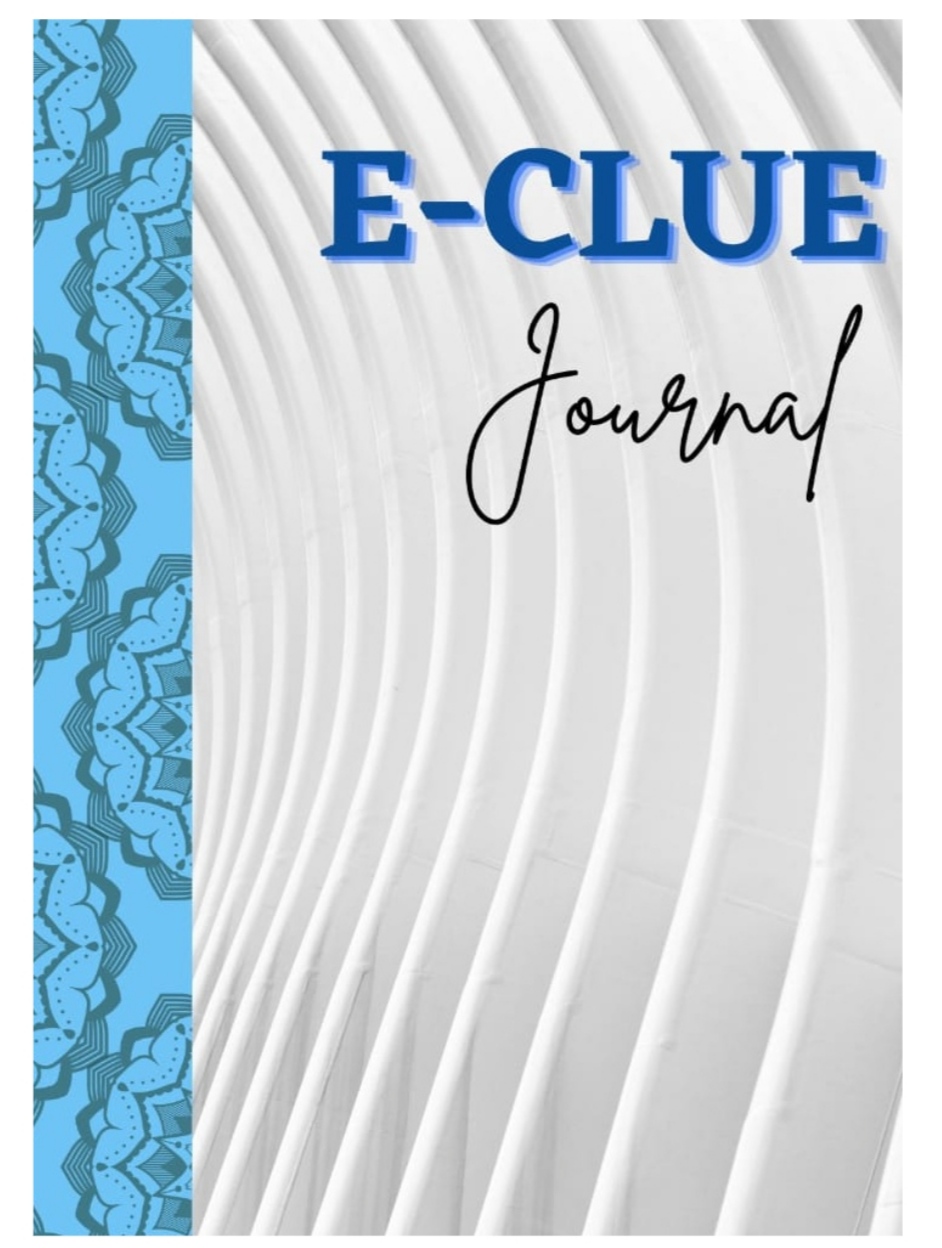Challenges Faced by EFL Teachers in Setting Learning Objectives for Writing Materials in the Senior High School Context
DOI:
https://doi.org/10.53682/eclue.v13i2.12736Keywords:
EFL writing, Learning objective, Curriculum interpretation, Professional developmentAbstract
This study investigates the challenges encountered by English as a Foreign Language EFL teachers in setting learning objectives for writing instruction in Indonesian senior high schools Using a qualitative phenomenological design data were collected through questionnaires and semi structured interviews with 20 EFL teachers across various schools in Makassar followed by thematic analysis to identify shared patterns of experience The findings reveal five major themes: challenges in curriculum interpretation constraints from student related factors instructional design limitations adaptive strategies for objective setting and institutional and professional needs Teachers reported difficulty translating the broad competencies of nbsp;< span>Kurikulum 2013< em> nbsp;< span>into measurable classroom objectives due to limited training in curriculum interpretation and instructional design They also faced learner heterogeneity low motivation and writing anxiety which necessitated process based and differentiated goals Despite these barriers teachers demonstrated pedagogical agency through adaptive strategies such as backward design pre assessment authentic writing tasks and technology assisted feedback to enhance coherence and engagement The study highlights the need for sustained practical and context specific professional development that connects curriculum theory with classroom practice Institutional mentoring and professional learning communities are recommended to strengthen teachers ability to design realistic measurable and contextually relevant objectives for EFL writing instruction The research contributes to the broader understanding of teacher cognition and curriculum enactment illustrating how educational policy pedagogical decision making and local realities interact to shape the quality of writing instruction in Indonesia < span>< div>References
Averina F E Kuswandono P 2023 Professional development of Indonesian in service EFL teachers: Perceived impacts and challenges Englisia: Journal of Language Education and Humanities 10 2 71 91
Biggs J Tang C 2007 Teaching for quality learning at university 3rd ed McGraw Hill Open University Press
Borg S 2018 Teacher Cognition and Language Education: Research and Practice Bloomsbury Academic
Braun V Clarke V 2006 Using thematic analysis in psychology Qualitative Research in Psychology 3 2 77 101 https: doi org 10 1191 1478088706qp063oa
Cahyono B Y 2024 A meta analysis study in EFL ESL writing Journal of Writing Research
Cahyono B Y Widiati U 2011 The Teaching of EFL Writing in the Indonesian Context: The State of the Art Jurnal Ilmu Pendidikan 18 3 263 275
Darling Hammond L Hyler M E Gardner M 2017 Effective Teacher Professional Development Learning Policy Institute https: learningpolicyinstitute org product effective teacher professional development report
D rnyei Z 2005 The Psychology of the Language Learner: Individual Differences in Second Language Acquisition Lawrence Erlbaum
Emilia E 2011 Pendekatan Genre Based dalam Pengajaran Bahasa Inggris: Petunjuk Praktis untuk Guru Rizqi Press
Hamdani M H 2025 Indonesian EFL students writing challenges: Linguistic cognitive and affective factors Global Englishes and Education Journal
Hanifa R 2024 Adapting EFL materials and its influences on Indonesia: A case study in senior high school SN Social Sciences
Hyland K 2003 Genre based pedagogies: A social response to process Journal of Second Language Writing 12 1 17 29 https: doi org 10 1016 S1060 3743 02 00124 8
Hyland K 2019 Second Language Writing 2nd ed Cambridge University Press
Lestari S Yusuf F N 2025 Aligning assessment practices with learning objectives: A case of EFL classes in Indonesia Indonesian Journal of English Language Teaching and Applied Linguistics 10 1 145 163
Liando N V Dallyono R Tatipang D P Lengkoan F 2023 Among English Indonesian and local language: Translanguaging practices in an Indonesian EFL classroom Indonesian Journal of Applied Linguistics 13 1 204 216
Liando N V Tatipang D P Lengkoan F 2022 A study of translanguaging practices in an EFL classroom in Indonesian context: A multilingual concept Research and Innovation in Language Learning 5 2 167 185
Lieberman A Miller L 2008 Teachers in Professional Communities: Improving Teaching and Learning Teachers College Press
Moses R Mohamad M 2019 Challenges faced by students and teachers on writing skills in ESL contexts: A literature review Creative Education 10 3385 3391
Nation I S P 2009 Teaching ESL EFL Reading and Writing Routledge
Priestley M Biesta G Robinson S 2015 Teacher Agency: An Ecological Approach Bloomsbury
Rahma T Setyaningsih N 2023 Teachers perceptions of curriculum interpretation under the revised Kurikulum 2013 Indonesian Journal of Educational Policy 8 1 35 48
Richards J C Farrell T S C 2020 Practice Teaching: A Reflective Approach Cambridge University Press
Sachs J 2016 Teacher professionalism: Why are we still talking about it? Teachers and Teaching 22 4 413 425 https: doi org 10 1080 13540602 2015 1082732
Saiful J A 2020 Mobile teacher professional development MTPD : Delving into English teachers beliefs in Indonesia TEFLIN Journal 31 2 301 317
Siekmann L 2022 Assessing less proficient EFL writers text quality: A classroom study Assessing Writing 53 100646






